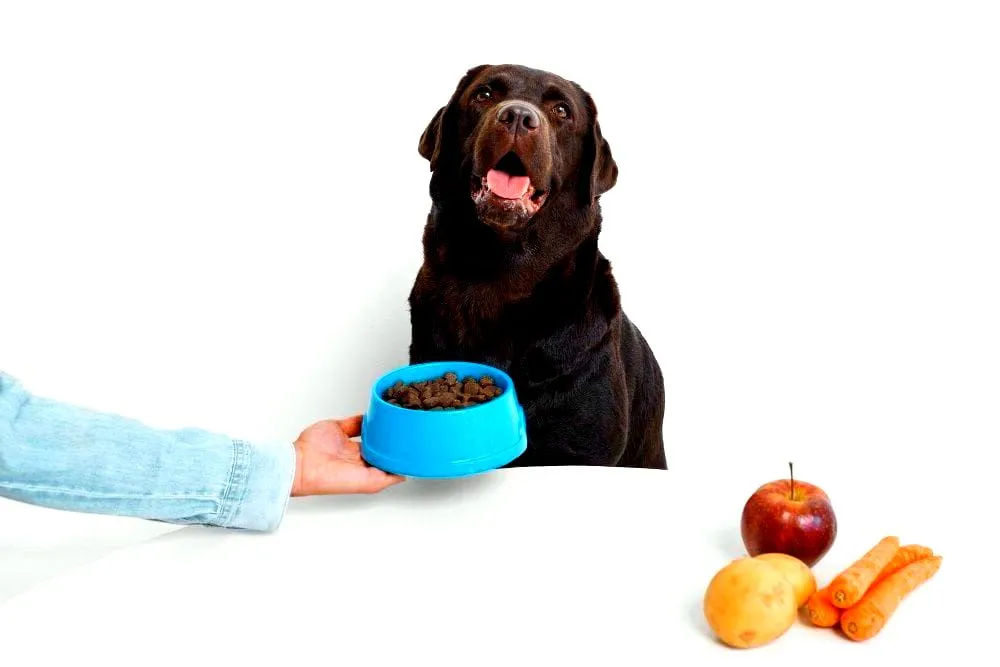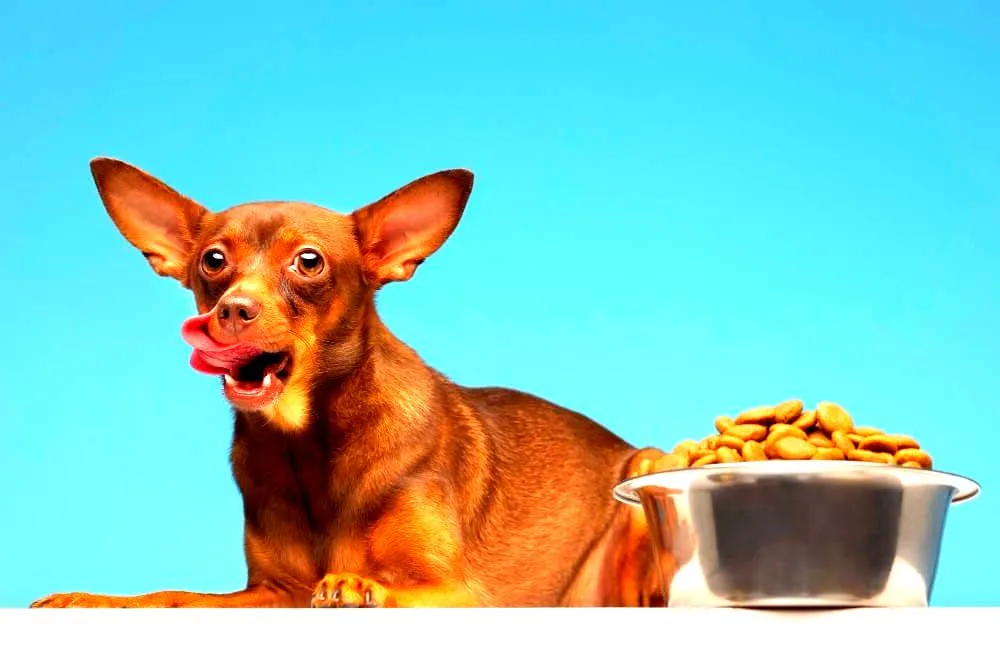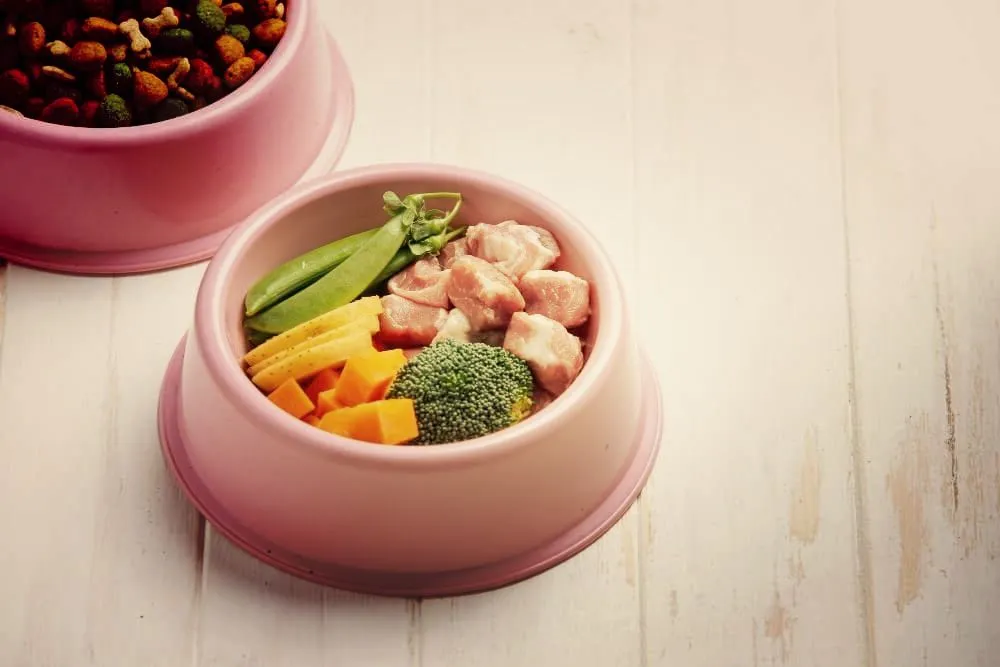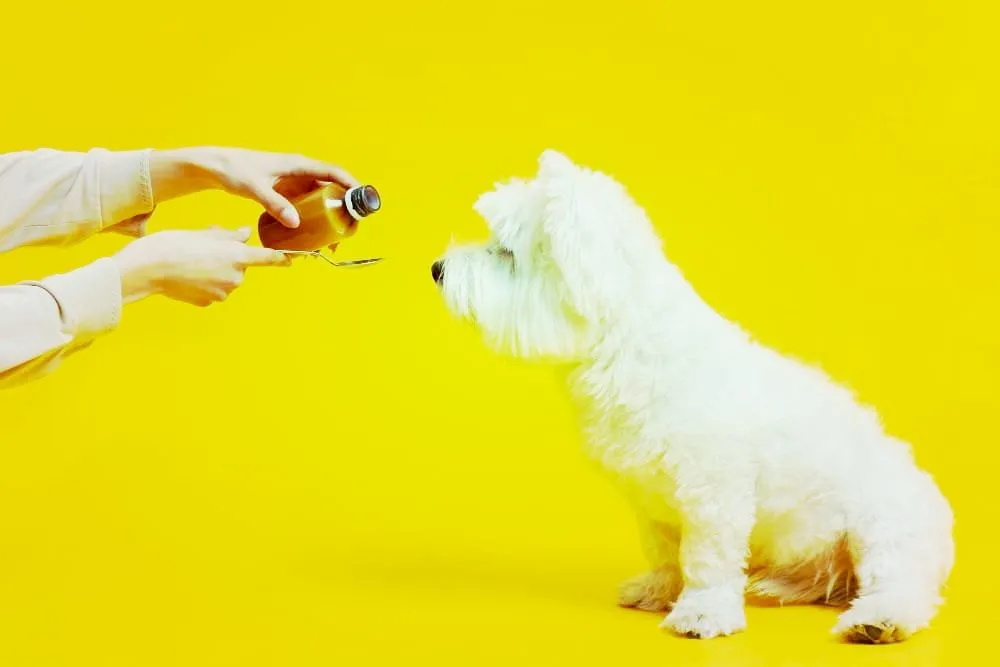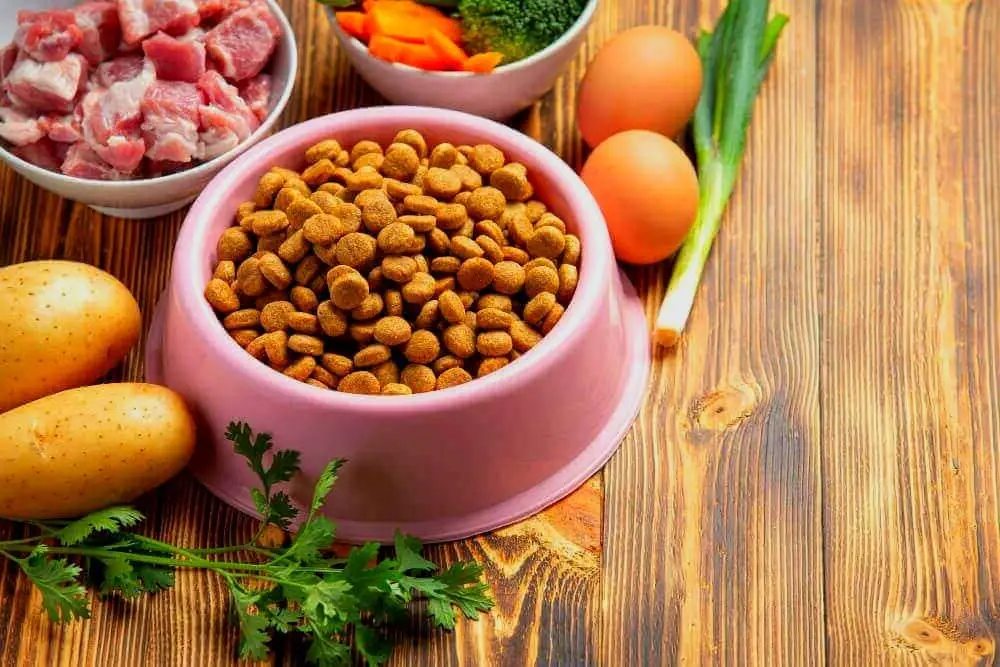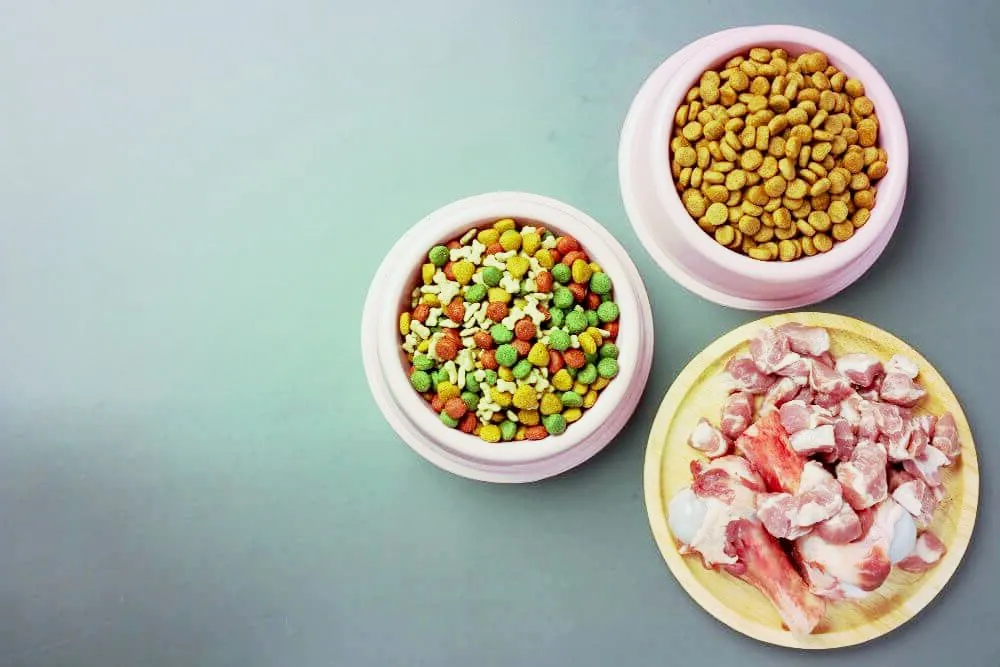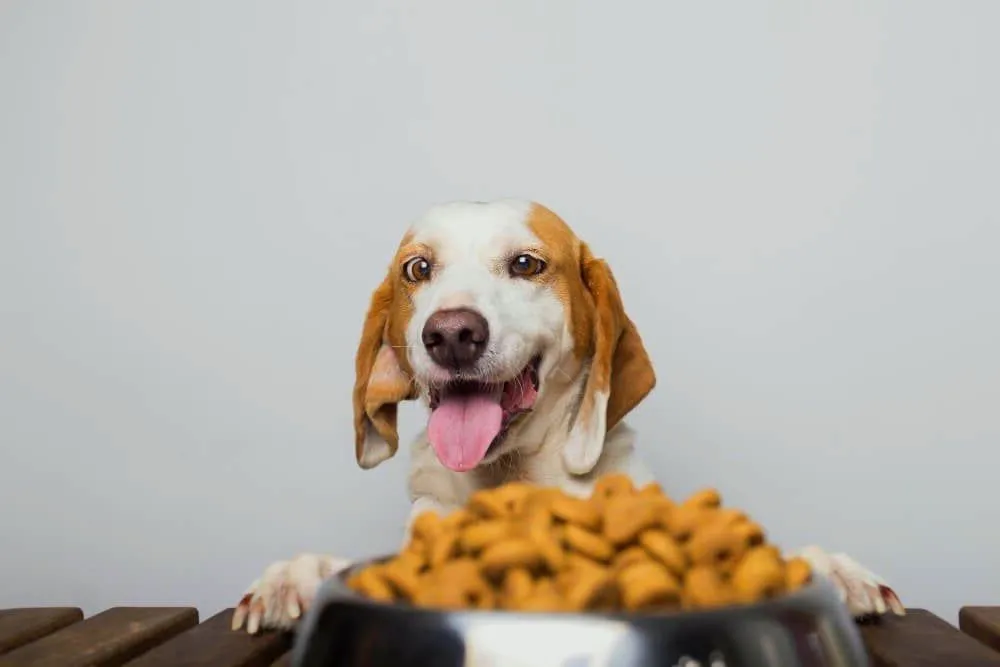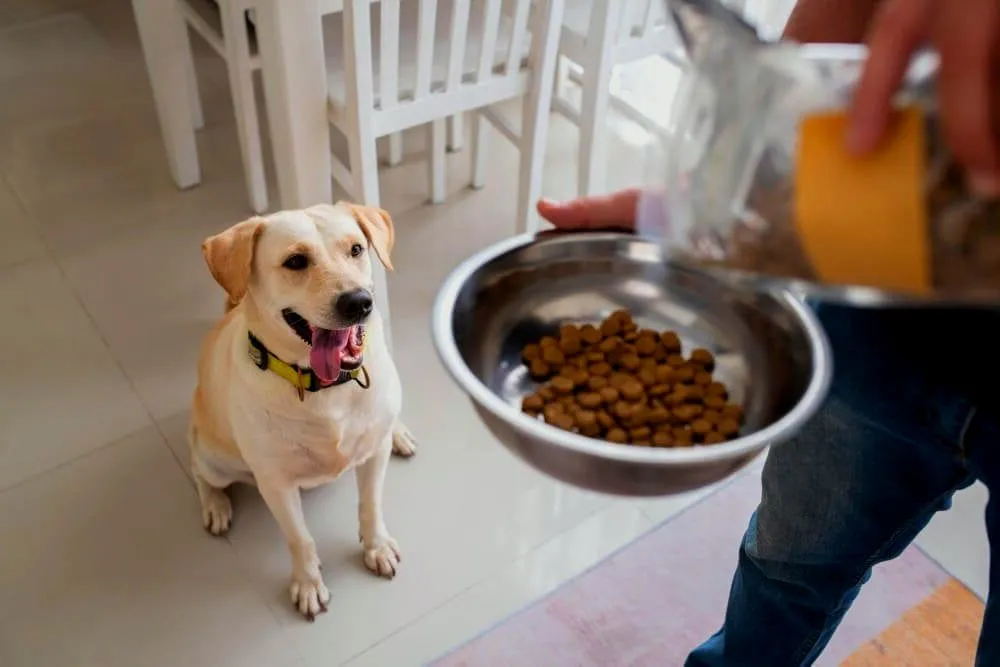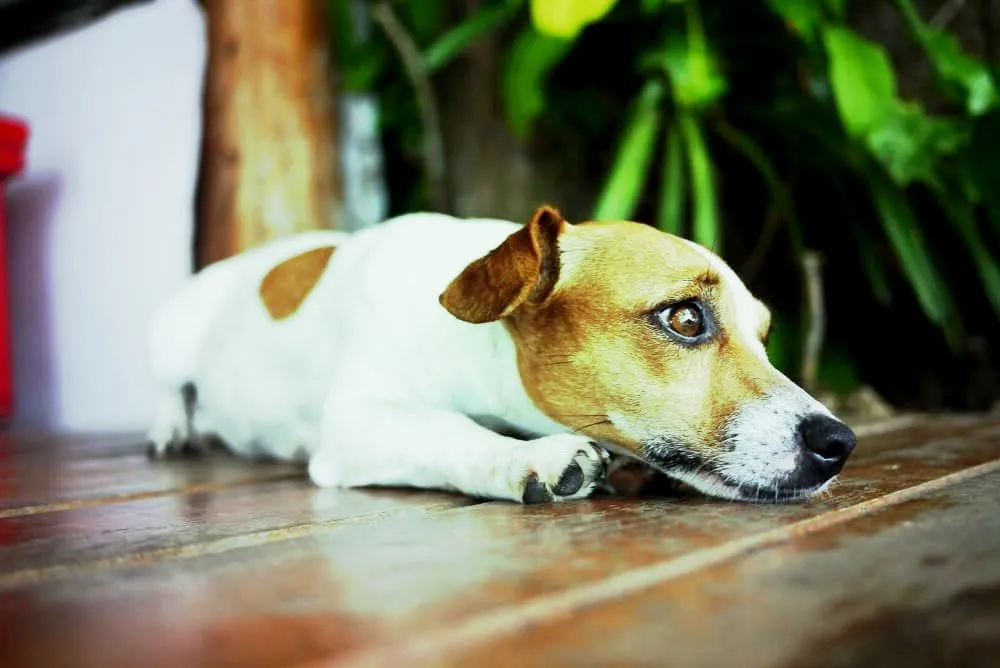
After a dog vomits yellow bile, a bland diet of boiled chicken and rice is recommended. Offering small, frequent meals can help soothe their stomach.
Dog Vomiting yellow bile signals that a dog’s stomach is empty and has become irritated. Dog owners commonly encounter this issue, prompting concerns about the appropriate care and diet for their pets post-vomiting.
When your dog experiences this, maintaining a gentle diet is paramount.
Boiled chicken and rice, staples for such cases, are not only easy to digest but also help line the stomach, reducing further irritation. By providing these in small portions throughout the day, you help your dog’s digestive system to recover without overwhelming it.
It’s essential not to rush into regular feeding, as a gradual reintroduction to normal food aids in complete recovery. Remember, if symptoms persist, consult your veterinarian, as they can provide specific advice tailored to your dog’s individual health needs.
Understanding Dog Vomiting And Yellow Bile
Vomiting in dogs is a reflex action initiated by the brain to expel harmful substances from the stomach. Triggered by signals from the digestive tract, this reflex can result from irritation or inflammation.
Bile, a digestive fluid produced in the liver, gets stored in the gallbladder and released into the beginning of the small intestine. Its presence in vomit indicates a mixture of stomach and small intestine contents.
Yellow bile, which may be seen when a dog throws up on an empty stomach, is a concentrated form of digestive fluid. It can suggest that the vomiting is not due to food, but rather an irritation that occurred when the stomach was empty.
Causes for a dog vomiting yellow bile could range from motion sickness to changes in diet, or even more concerning conditions such as intestinal blockages or gastrointestinal disorders.
| Cause | Description |
|---|---|
| Dietary Indiscretion | Eating something inappropriate leading to stomach distress |
| Bilious Vomiting Syndrome | Chronic condition involving bile-induced inflammation |
| Gastrointestinal Disease | Underlying health issue affecting the stomach or intestines |
| Motion Sickness/Anxiety | Stress-related responses triggering vomiting |
| Toxins or Foreign Bodies | Intake of harmful substances or objects |
Immediate Care After Vomiting
If your dog has vomited yellow bile, it’s crucial to monitor their behavior and ensure they have a quiet place to rest. Offer a small amount of water initially, and if they keep it down, gradually increase the quantity. It’s important to withhold food for 24 hours to allow the stomach to settle.
After fasting, introduce a bland diet consisting of boiled chicken and rice in small, frequent feedings. This approach can help soothe the digestive system and provide easily digestible nutrients.
Probiotics are also beneficial in supporting gut health and can be incorporated into their diet according to your vet’s recommendations.
Observation is key as certain symptoms necessitate immediate veterinary attention. Seek professional care if your dog displays signs of lethargy, continued vomiting, diarrhea, or discomfort. Your vet can provide a thorough evaluation and determine if further treatment or diagnostic tests are needed.
Dietary Management For A Recovering Dog
Dietary management is crucial when a dog is recovering from a bout of vomiting yellow bile. The first step often involves a 24-hour fasting period to allow the dog’s stomach to settle.
During this time, ensure constant access to fresh water to prevent dehydration. Once the fasting period is over, the introduction of food should be gradual.
Starting with easily digestible foods such as boiled chicken, white rice, or pumpkin is usually recommended. Small, frequent meals can aid in digestion and reduce stress on the gastrointestinal tract.
Monitor your dog’s reaction to the bland diet and if tolerated well, gradually return to their regular diet over a few days.
For long-term dietary management, integrating a balanced diet enriched with supplements like probiotics and prebiotics may support a healthy digestive system.
Incorporating appropriate fibers can also aid in gastrointestinal health. Consultation with a veterinarian is advised for personalized recommendations tailored to your dog’s specific needs.
Prevention And Maintenance
Dog vomiting yellow bile can be concerning for pet owners, signaling the need to scrutinize their pet’s diet. Often, this symptom is associated with canine food sensitivities.
A careful assessment of the dog’s dietary intake is crucial, as certain ingredients might trigger an adverse reaction. Introducing a hypoallergenic diet incrementally might mitigate the risk of further episodes.
Regular feeding schedules also play a vital role in a dog’s digestive health. Feeding smaller, more frequent meals can help regulate the stomach’s acid production, which is often the cause of vomiting bile. Stick to a consistent routine to maintain your dog’s optimal digestion.
Lastly, for ongoing digestive health, integrating probiotics and digestive enzymes into your dog’s diet can provide significant benefits. Pay attention to the quality of food, ensuring it includes easily digestible proteins and low-fat content to prevent irritation of the digestive tract.
FAQs On What Should I Feed My Dog After Vomiting Yellow Bile
What Home Remedy Can I Give My Dog For Vomiting Yellow Bile?
Fast your dog for 12-24 hours and offer small amounts of water frequently. Afterwards, introduce a bland diet like boiled chicken and rice. Consult your vet if vomiting persists.
What Medicine Is Good For Yellow Dog Vomit?
If your dog vomiting yellow bile, consult a veterinarian for a proper diagnosis and treatment plan. They may prescribe anti-emetic medication to ease the symptoms. Always seek professional advice before administering any medicine to your pet.
Why Is My Dog Throwing Up Yellow Bile And Not Eating Or Drinking And Shaking?
Your dog may be experiencing gastritis or an upset stomach. Yellow bile vomiting with refusal to eat or drink and shaking suggests distress or illness. See a veterinarian right away to ensure appropriate diagnosis and care.
How Often Should You Feed A Dog With Bilious Vomiting Syndrome?
Feed a dog with bilious vomiting syndrome small, frequent meals throughout the day, typically 3-4 times daily. Consult with a vet for a tailored feeding schedule.
A Final Word
Navigating your dog’s post-vomiting diet can be worrisome. Opt for bland, easy-to-digest meals like boiled chicken and rice.
Remember, hydration is key. Gradually reintroduce regular food as they recover. Consult your vet for persistent issues. Prioritize your furry friend’s well-being always.
Stay patient and supportive during their recovery journey.

